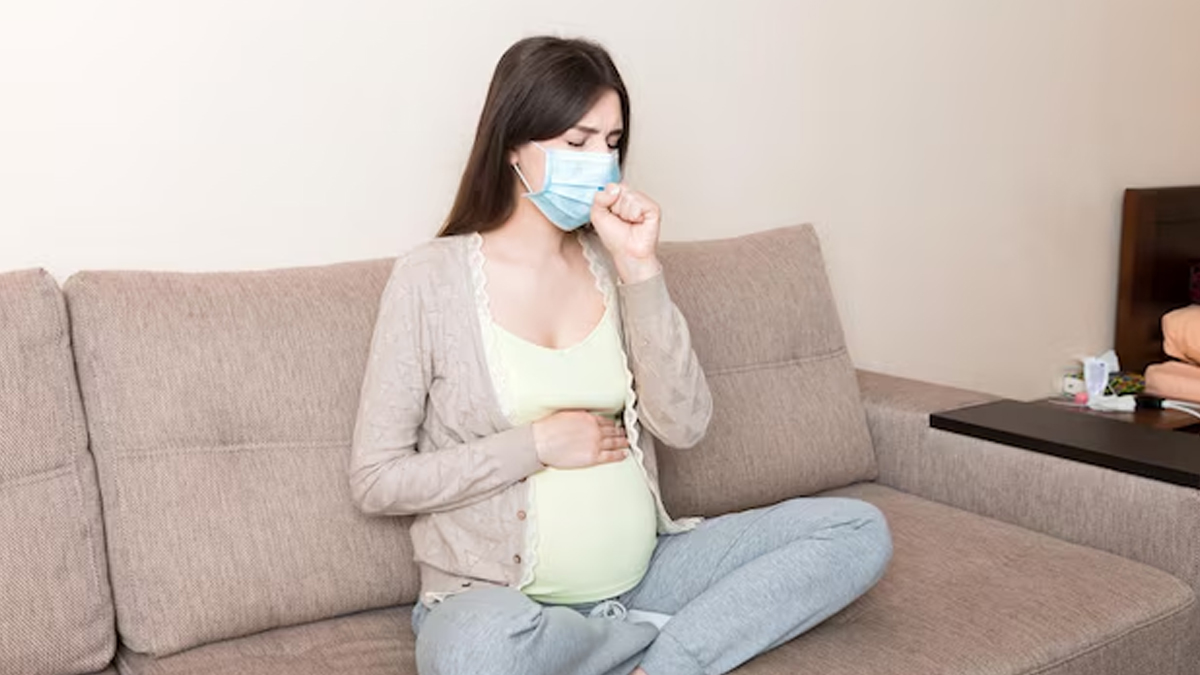
Delhi’s air quality levels are in no mood to improve it seems. The capital city of India is still wrapped by a toxic smog, with its air quality index (AQI) falling under the ‘very poor’ category. Every other day, doctors and experts are revealing how this hazardous air quality is harming our health in different ways – not just our lungs, it impacts our bones, brain, eyes and skin, among others. Did you know that poor air quality affects our fertility health too? Yes, you read that right.
Table of Content:-
To get a better understanding of this, we reached out to Dr Muskaan Chhabra, Fertility Specialist, Birla Fertility & IVF, Lajpat Nagar, New Delhi. Read ahead.
Can Air Quality Affect Fertility?
Let us start by trying to understand whether bad air quality can affect fertility or not. “Air quality does play a role in fertility, and we see its impact more clearly now than we did a few years ago. When pollution levels stay high for long stretches, the body is exposed to more oxidative stress. That can affect hormone rhythms, ovulation and, in some cases, egg quality. Men are not spared either. Sperm count and movement are quite sensitive to environmental stress, and we often see changes during heavy pollution months,” explains Dr Chhabra.
On this note, let us take a look at how air pollution affects male fertility:
- Reduced sperm quality: Exposure to air pollutants, especially fine particulate matter (PM2.5), has been linked to reductions in sperm count.
- Hormonal disruptions: Chemicals such as BPA and phthalates can mimic hormones and lower testosterone levels, damaging sperm production.
- DNA damage: Pollutants can produce oxidative stress that breaks DNA in sperm cells. This can result in infertility or birth abnormalities.

Here’s how air pollution affects female fertility:
- Endocrine disruption: Just like in men, pollutants can interfere with hormone levels in women too, impacting ovulation and menstrual cycles.
- Reduced egg quality: Women who are trying to conceive or are living in polluted cities for a long period of time, they may have a reduced ovarian reserve and poorer egg quality. This can make it difficult for them to conceive.
- Increased risk of miscarriage: Multiple studies indicate a link between exposure to air pollution and increased rates of miscarriage.
Also Read: Is Toxic AQI Leading to Non-Smokers' Lung Cancer Rise in India? Doctors React
Can Air Purifiers Protect Fertility Health?
Now that we know how bad air quality can negatively impact our fertility, let us see whether purifiers can help us. “Air purifiers are not a cure for these problems, but they do reduce the amount of exposure to these harmful particles indoors. Purifiers that are HEPA filter-based reduce exposure to common irritants like pollutants, pollen, mould, etc, that can cause inflammation and oxidative stress. Better air quality helps in the maintenance of hormonal balance, and sleep quality and safeguards from toxins. So yes, for couples planning a pregnancy, having a purifier at home is generally advisable, especially in cities with high AQI,” explains Dr Chhabra.
Now if you are wondering whether an air purifier is good for pregnant women or not, let us take a look at what the expert has to say.

“Pregnant women experience shifts in hormones and immune system frequently and hence, they exhibit even higher sensitivity to toxins and pollutants. Exposure to PM2.5 or nitrogen dioxide has been linked to hypertension, gestational diabetes and even preterm birth. Hence, air purifiers at home are good for them provided manufacturer guidelines are followed, filters are cleaned or changed regularly, and ozone-producing air purifiers are avoided,” advises Dr Chhabra.
Tips To Protect Fertility Health Amid Rising Air Pollution Levels
Let us take a look at some steps to control our air pollution exposure:
1. Track Air Quality Index (AQI)
It is important to understand how polluted the air we are breathing is, or if it is affecting fertility. Real-time air quality data is thus crucial. You can keep a check on it through the air quality data provided by the environmental organisations. This can help you to make informed decisions for outdoor activities. You can also check your indoor air quality by installing an air quality monitor.
2. Install Air purifiers:
Installing air purifiers, especially those which have HEPA filters, can help in cleaning and enhancing the air quality. This can improve your indoor air quality and help you breathe in a clean environment. This can help pregnant women and infants.
3. Limit Outdoor Activities:
You can avoid or limit your outdoor activities when the air pollution levels are high. Staying indoors during the peak hours of air pollution may protect you from pollutants exposure.
4. Healthy Lifestyle:
Maintaining a healthy lifestyle, which includes regular exercise and a good diet, can help you keep your fertility health in check when the pollution is worsening. Indoor exercises or workout is advisable to avoid air pollution.
Dr Chhabra summarises it all for you: “A few simple habits go a long way: keep windows shut when AQI is high – like early morning and evenings; use a HEPA-based purifier and clean filters regularly; ensure ventilation in the house, bathrooms and kitchens during better AQI timings like afternoon; cut down on incense and aerosols; keep indoor dust under control. You can also introduce house plants like Peace Lily or Snake Plant, and ensure intense hydration. These small steps create a healthier environment for fertility and for general wellbeing.”
Also Read: Do Men with Diabetes Have Healthy Sperm? Doctors Explain the Link Between Blood Sugar and Fertility
The Final Word
Air quality can affect fertility, in both women and men. When pollution levels are high for a longer period, the body is exposed to more oxidative stress. This can affect hormone rhythms, ovulation and, in some cases, egg quality in women. Sperm count of men may also be affected due to bad air quality. With certain lifestyle and environmental changes, one can boost their fertility health amid rising levels of air pollution.
Also watch this video
FAQ
Can air quality affect fertility?
Bad air quality consistently showed negative impacts with oocyte survival, fertilization and embryo quality.Can air quality affect pregnancy?
Metabolites and metabolic pathways in the mother are affected by air pollution, which suggests that they may function as mediators in the pathways that produce unfavorable pregnancy and birth outcomes.Can you use an air purifier while pregnant?
Yes, an air purifier is generally safe and beneficial for pregnant women, especially those in areas with high pollution levels.
How we keep this article up to date:
We work with experts and keep a close eye on the latest in health and wellness. Whenever there is a new research or helpful information, we update our articles with accurate and useful advice.
Current Version
Nov 26, 2025 13:11 IST
Modified By : Shruti DasNov 26, 2025 13:11 IST
Published By : Shruti Das